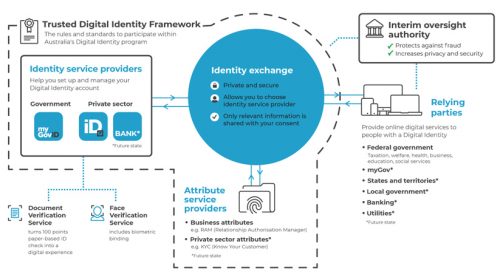
Candidate Answer #10 Executive Order
When you asked in Question 5 how Texas should respond to the call to accept more refugees, my answer was “No”. That remains my answer to this question, too, although the details in this hypothetical situation give even more reasons to justify a “No” answer:
Executive Orders:
The Constitution makes the President the executive who must “take Care that the Laws be faithfully executed” (Const. Art. II, §3, Cl. 5). With that in mind, executive orders are designed to direct executive officers to carry out their duties and operations. The whole purpose is to manage agencies of the executive branch, so executive orders are only permissible and proper if founded in the Constitution or an act of Congress. They are subject to court review, and may be struck down if they are not supported by statute or the Constitution. President Truman learned about that when he placed steel mills under federal control, and the Supreme Court called that invalid because an executive order cannot make law; it can only clarify or further a law.The executive order in this hypothetical makes law. It places the Lone Star airport under federal control, and, really, places Montgomery County under federal control by planning to distribute refugees throughout the county and it requires cooperative action by our state and local officials. The President cannot dictate what state and local officials do, nor may he take over our airport and force refugee distribution throughout Montgomery County. None of this qualifies as managing agencies of the executive branch of the federal government.
Immigration Policy Is Legislative, Not Executive:
Immigration policy is the subject of legislative action, and not of executive orders – that’s what the 5th Circuit Court of Appeals said less than 3 months ago. In State v. U.S., 15-40238 (5th Cir. 11-9-2015), the Court considered an Obama Executive Order related to illegal aliens. The Court found that immigration is Congress’ purview, not the executive’s, based upon the constitution and statutes already in place:
Through the INA’s specific and intricate provisions, “Congress has ‘directly addressed the precise question at issue.’”…DAPA [the Executive Order at issue] is foreclosed by Congress’s careful plan; the program is “manifestly contrary to the statute” and therefore was properly enjoined.
Takings Clause:
“[N]or shall private property be taken for public use, without just compensation.” Const. 5th Amd. When the government physically seizes property or engages in sustained physical invasions of property, it must pay just compensation.
This hypothetical relates to commandeering use of the Lone Star Airport for an undetermined length of time. The Lone Star Airport does not belong to the federal government – it belongs to Montgomery County, and the airplane hangers at the Lone Star Airport are subject to long-term leases (99 years) with private citizens owning those leases. If the federal government has any authority to take the airport – even for a limited time period – it must compensate all whose property is taken. Perhaps what Montgomery County owns would not be “private property” in this scenario, but what the hanger lessees own certainly are. The federal government’s expense of time and money to fulfill this executive order might well deter its implementation.
Action From Other Officials:
Montgomery County officials are not pawns of the federal government. Their authority derives from Texas law. It is hard to imagine that the federal government could dictate the actions of State and Local officials, and even harder to fathom how a member of the federal Executive Branch could do so. My official position would be taken in any court case that comes before me related to aspects of this action – my rulings would depend on the issues as raised, so I cannot say what my positions would be. But my unofficial position is the premise of Printz v. United States, 521 U.S. 898 (1997). This case involved a provision of the Brady Act which required local law enforcement officials to verify if a gun purchaser was legally permitted to have a gun. Justice Scalia wrote the majority opinion based upon “dual sovereignty”, and concluded that allowing the Federal government to draft local police officers into federal service was an exercise of powers well beyond Constitutional boundaries. See also New York v. United States, 505 U.S. 144, 188 (1992) (invalidated coercion of states to comply with federal radioactive waste-disposal regime because “[t]he Federal Government may not compel the States to enact or administer a federal regulatory program”).
Candidate Answer #9 Ethics
It depends — and though that may sound like an unsatisfying answer, it is actually exactly the answer you want a Judge to give. What it depends upon is always what the consequence to be doled out depends upon — what was the mindset of the violator. If two people are convicted for each stealing a proverbial loaf of bread, but one stole because she was a thief, and the other because she was starving, the consequences of dealing with each person should vary.
Candidate Answer #8 Transparency
Candidate Answer #7 Nullification
There are two different types of nullification, the principles and application of which follow:
1. Constitutional Nullification: This is the legal theory that a state has the right to nullify/invalidate a federal law which that state has deemed unconstitutional. Courts, including the U.S. Supreme Court, reject the theory under the Supremacy Clause and the fact that the Constitution does not contain any clause expressly giving states that power.
I think that analysis is backwards. The Constitution makes clear that if something is not an express power given to the federal government, then it is reserved for the states. Nothing in the Constitution expressly says that the federal government is the end all/be all. The power to declare laws unconstitutional is part of state sovereignty and is, in my view, a power reserved to the states by the Tenth Amendment.
So if a statute is unconstitutional, a court should (and is obligated to) strike it down, whether the statute is a Texas statute or a federal one. If, however, what is at issue is not a statute, but is, instead, some controlling precedent from a higher court which is wrongly decided, the issue is not so simple. Realistically, it would be hard to even reach this point given how cases may often be distinguished on facts, but if a judge did reach this point, then the judge should do two things:
(1) Follow the precedent because that is what a lower court is obligated to do; the Heritage Foundation has an internet article which explains why:
Judicial activism occurs when judges…ignore binding precedent and instead decide cases based on personal preference. Labeling as “activist” a decision that fails to meet this standard does not express policy disagreement with the outcome; it expresses disagreement with the judge’s conception of his or her role in our constitutional system.
but even though a judge must follow the precedent, she is not powerless:
(2) She should write an opinion in the Order to express her doubts about the validity of the precedential opinion for the purpose of framing the issue for the appropriate appeal courts which do have the authority to reverse a wrongly decided precedent.
2. Jury Nullification: If a jury feels a law is unjust, it has the power to nullify the law with the verdict. That’s a jury’s way of saying, “The law says the defendant is technically guilty, but only in an ‘Oh come on!’ sense, so we vote not to find guilt.” A judge’s job is to render a judgment based on a jury’s verdict (absent compelling circumstances), so rendering a judgment coming from the jurors’ verdict is what a judge should do.
Candidate Answer #6 Reinventing Debtors Prison
Is this a valid complaint? Maybe. The U.S. Supreme Court says not enforcing fines against indigents “would enable an indigent to avoid both the fine and imprisonment for nonpayment whereas other defendants must always suffer one or the other”, but still “the Constitution prohibits the State from imposing a fine as a sentence and then automatically converting it into a jail term solely because the defendant is indigent and cannot forthwith pay the fine in full.’” Tate v. Short, 401 U.S. 395, 398-99 (1971); see also Tex. Const. Art. I, §18 (“No person shall ever be imprisoned for debt.”); Tex. Code Criminal Procedure. Art. 45.048(a)(1) (“A defendant placed in jail on account of failure to pay the fine and costs shall be discharged…by showing that the defendant…is too poor to pay the fine and costs”). So the trick is to require payment of lawfully imposed fines without imprisoning someone just for being poor.
What is the solution?
For Those Who Can’t Pay: Use installment payment plans. That approach requires payment without crossing the constitutional line, and saves tax dollars by avoiding “the expense of maintaining a prisoner and…supporting his family under the state welfare program while he is confined.” Tate, 401 U.S. at 400 n.5.
For Those Who Can Pay But Don’t: There is no constitutional problem with imprisoning a defendant who has the ability to pay a fine but chooses not to. Id. at 399.
Question # 5 Refugee Resettlement
Candidate Answer #5 Refugee Resettlement
“No”.
Question # 4 Overcriminalazation
Please review video Overcriminalization in 60 Seconds
[youtube https://www.youtube.com/watch?v=hiw5j8xweQk]
Candidate Answer #4 Overcriminalization
Overcriminalization results from numerous outdated and unnecessary criminal laws – as the video explains, we can’t even count how many such laws there are. The solution lies with legislative bodies, both state and federal, which need to repeal such laws, and to quit criminalizing behavior which just isn’t criminal in nature.
But unlike legislators, Judges cannot do that; a Judge cannot repeal a law. Judges must apply criminal laws on the books, but when they do, they must make sure that the law is clear and has been violated before taking away someone’s life, liberty, or property. If the words used in a law show the defendant’s conduct was not criminal, or the law is simply too broad to be constitutional, then the Judge can take appropriate steps in a case to see that justice is done and that we do not criminalize conduct which is not actually criminal.
The growing prison population is tied to overcriminalization, but the overcrowded jail population in Montgomery County is more closely tied to the backlog of cases in our courts. Judges can resolve that problem by moving cases through the system and applying efficient justice for all. That is something which must be done to alleviate the overcrowding problem in Montgomery County, and that is something I will do as Judge of the 410th District Court.
Society’s best response to this problem is to encourage congressmen and state legislators to eliminate unnecessary criminal laws and quit passing new ones.
Question #3 Filming the Police
With the advent of smartphones and amateur journalist blogging the filming of public interaction of law enforcement with the public has grown exponentially. The existence of these digital records can have a significant effect, either positive or negative on investigations and conduct of law enforcement as they go about their duties.
One recently proposed bill sought to create a misdemeanor for filming within 25 ft.
Police agencies are responding by drafting new policies that address the legal issues for the public and the members of law enforcement. Recently, the Montgomery County Sheriff’s Dept. and Pct 5 Constables Office attended a NPPA Conference in advance of developing a policy for Montgomery County.
As a Lawmaker, Law enforcer or Law Judge,
What elements must a good policy include and what role should the public play in its development and implementation?
Candidate Answer #3 Filming the Police
Although judges do not make policy, I personally agree with Conroe Policy Deputy Chief Russell Reynolds – no policy is necessary. Members of the public are permitted to videotape police. They cannot interfere with police whether by videoing or otherwise, but they are free to video. A good policy would simply make clear that the public is free to observe and video so long as the public does not interfere with an investigation. Police are able to keep the public away from a crime scene with police tape, may ensure that the public is not blocking traffic, or the like, but they cannot prevent the public’s use of a camera at a crime scene.
Question #2 The Nature of Law
During Texas 84th legislative session State Representative Mark Keough introduced HB 3184 a bill seeking to import the civil law process of mediation into criminal law. The law applied to some first time misdemeanor and felony offenders. The bill passed though the legislative process but failed to become law on veto by Governor Greg Abbott who stated “Making amends with the victim of a crime does not absolve the criminal of his legal debt to the State.”
Do you agree with the Governor? What is the purpose of law from your point of view as a Legislative/Judicial/ Law Enforcement official? Who is it intended to protect?
What should be the role or effect of private judging companies (such as Judicial Arbitration and Mediation Service) in the judicial or incarceration system?
(answer should be based on elected office sought.)
Candidate Answer #2
It’s good that this Bill tries to reduce criminal case backlog. We spend $12.8 million a year on people in jail waiting for their cases to go to trial. As Judge of the 410th, I will efficiently try those cases, versus my opponent’s plan to move those cases into other courts. Let’s solve the problem – not worsen it.
Even so, I agree with the Governor. Criminal cases deal with offenses against public, not just the victim. The problem with writing a check to escape criminal responsibility shows in high profile cases like Bill Cosby’s and Michael Jackson’s.
The purpose of law is to tell the public what to expect, and what is expected of them. It protects the people, from government overreach and from each other. That’s why private judging companies have no role in criminal cases.
Question #1 Civil Asset Forfeiture.
Texas Supreme Court Justice Don Willett said “A generation ago in America, asset forfeiture was limited to wresting ill-gotten gains from violent criminals. Today, it has a distinctive ‘Alice in Wonderland’ flavor, victimizing innocent citizens who’ve done nothing wrong.”
Candidate Answer #1
Thank you for inviting me to respond to this important question. Though I cannot opine about how I would rule on a civil forfeiture case which might come before me, I can describe the procedure, approach, and scrutiny I would use to issue rulings in this field. In most important particular, compliance with a citizen’s constitutional guarantees would be a key consideration in every decision. For an excellent answer to my procedure, approach, and scrutiny, I quote from Justice Don Willett’s cautionary dissent in El-Ali v. State, 428 S.W.3d 824 (Tex. 2014):
[T]he civil-forfeiture realities of 2014 – the prevalence, procedures, and profitability – compel us to reexamine the constitutional protections due innocent property owners. The stakes are grave indeed, as asset-forfeiture cases threaten not merely property but, more fundamentally, property rights, something we have recently (and unanimously) extolled as essential to “freedom itself.” Civil forfeiture springs from the Legislature’s broad police power, but as we recently made clear, police power cannot go unpoliced….If the State of Texas wants to ensnare guiltless citizens and seize their homes and other property, it must do so – always – within the bounds of our Constitution.…Ali argues that the burden placed on owners to prove their innocence violates his due-process rights under Article 1, Section 19 of the Texas Constitution [which states, “No citizen of this State shall be deprived of life, liberty, property, privileges or immunities, or in any manner disfranchised, except by the due course of the law of the land.”]….
* * * * *
Modern government wields vast power, power that tests the boundaries of constitutional guarantees.…Texas, like the federal government and other states, has dramatically expanded the use of civil forfeiture. But as asset forfeiture grows, so grows the risk of abuse – what some call “policing for profit.” Across America, cash-strapped governments at all levels increasingly rely on civil forfeiture to boost revenue – to fund operations, buy new equipment, and so on. Government budgeteers relish multiple spigots, and money from confiscated property provides an irresistible profit incentive. But the intersection of power and profit is a troubling one. When agency budgets grow dependent on asset forfeiture, not as an occasional windfall or supplement but as indispensable revenue to fund basic operations, constitutional liberties are unavoidably imperiled. Unsurprisingly, a cottage industry has emerged to advise law enforcement how to boost their asset-seizing potential.
* * * * *
Funding government is important. Safeguarding the constitutional rights of Texans is more important. Fundamental rights should never be sacrificed with non-chalance. The Texas Constitution places limits on capricious government abridgements, and does so on purpose. As Justice Branddeis warned in his prescient Olmstead dissent: “Experience should teach us to be most on our guard to protect liberty when the government’s purposes are beneficent.”
* * * * *
The Texas Constitution’s protection of private property rights is unsubtle. It is a building-block guarantee we have lauded as “fundamental, natural, inherent, [and] inalienable.” Our Constitution was written precisely to prevent carte blanche assertions of governmental power, to prevent police power from devolving into police state. The United States Supreme Court, for example, has recognized that forfeiture endangers rights and that the Eighth Amendment’s “excessive fines” clause prohibits disproportionate civil forfeitures. Given the ubiquity and muscularity of modern forfeiture practice, I believe the judiciary should take a moment to reassess and ensure that 2014 practice comports with constitutional protections.
* * *
The civil-forfeiture landscape has changed radically since we last examined this subject in 1957. Perhaps we would rule now as we ruled then, that Texas forfeiture law does not treat innocent property owners unconstitutionally. Even so, modern practice warrants modern study. Done right, forfeiture is a potent crime-fighting tool. But when a guiltless Texan is permanently stripped of his home and possessions, his property, however valuable, is not the most precious thing being surrendered. The forfeiture regime involves inherent imbalances, and judges must ensure that the constitutional scales aren’t overly tipped in the government’s favor.”
Per Justice Willett, I would approach each case procedurally with an eye towardsthe constitutional ramifications of each case to ensure that the "constitutionalscales aren't overly tipped in the government's favor."






